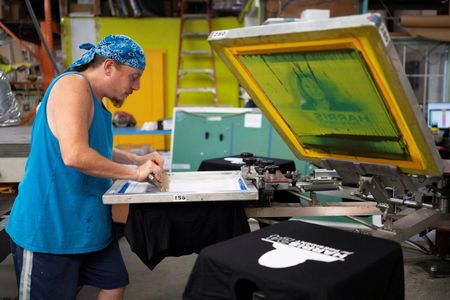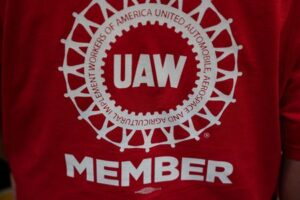By Andrea Shalal
WASHINGTON (Reuters) – Democratic presidential candidate Kamala Harris heads to New Hampshire on Wednesday to unveil a $50,000 tax deduction for new small businesses as she works to win over independent voters and Republicans skeptical of former President Donald Trump.
The vice president will announce the plan in North Hampton, New Hampshire, as a measure to stimulate economic growth, a campaign official said. Small businesses are major employers and have created 70% of net new U.S. jobs since 2019, according to government data.
Harris has her eyes on independent voters in the state, where the 330,000 registered independents outnumber Democrats (258,000) and Republicans (301,000).
Recent polls show Harris with a four to six percentage point lead in the state over Trump, her Republican rival in the Nov. 5 election.
Trump spokesperson Karoline Leavitt denied a news report that Republicans had given up on the state and said Trump’s campaign had an on-the-ground presence, office and staff there.
“Kamala Harris is parachuting in because she knows that the Granite State is in play,” she said. “No amount of campaigning in New Hampshire will make up for the fact that Kamala Harris’ support for Bidenomics is crushing them. Energy prices and inflation are up while profit margins and small business optimism are down — and Kamala Harris is to blame.”
Harris will appear at a brewery, joined by elected officials and a leader of a “Republicans for Harris” group in New Hampshire. The state has supported a Democratic candidate in every presidential election since 1992, except for former President George W. Bush’s 2000 win. U.S. President Joe Biden beat Trump in the state by seven percentage points in 2020.
Harris’ campaign said the proposed tax credit was part of a broader plan to lower costs for Americans, expand access to affordable housing and reduce prescription drug prices.
The proposed tax deduction offers a tenfold increase over existing relief for new small businesses, which cost about $40,000 to start, the campaign official said.
The Treasury on Tuesday said the U.S. was averaging 430,000 new business applications per month so far in 2024, up 50% from 2019, the last pre-COVID year of Trump’s administration.
Data released earlier this month showed annual inflation slowed to below 3% for the first time in nearly 3-1/2 years in July.
(Reporting by Andrea Shalal; Editing by Caitlin Webber and Cynthia Osterman)





